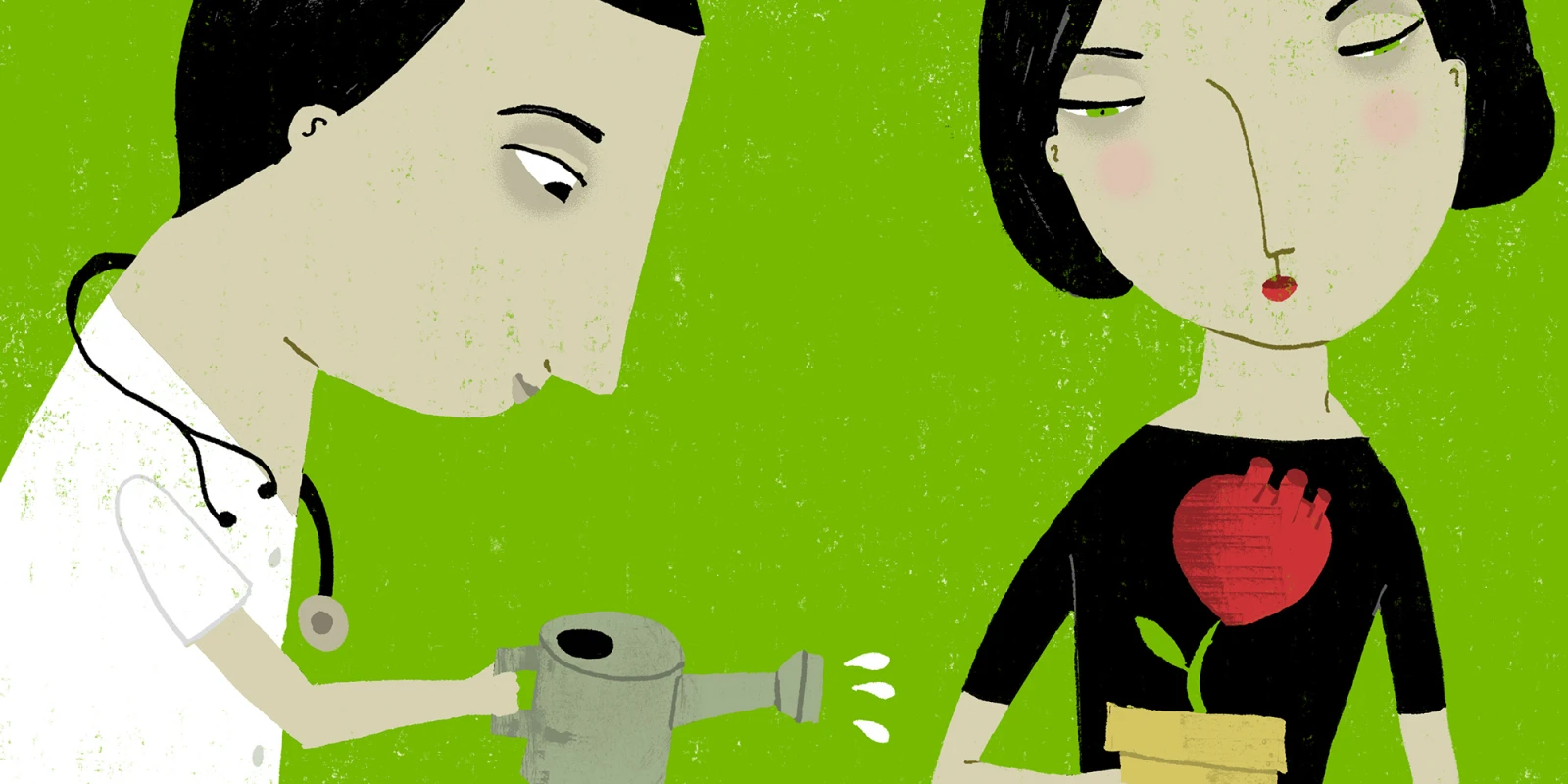
It was almost noon already as the attending surgeon and I approached the only room in the ICU that still had the lights off.
A thin elderly woman who had undergone an operation a week prior lay still on the bed, sunken into the fold of a worn-out mattress.
Most patients who undergo this operation leave the hospital the next day, but her case had been complicated by profuse bleeding and severe respiratory failure. There were large incisions in both of her thighs. She had to remain on the ventilator for nearly a week until she could safely breathe on her own. For a few days, her condition was so tenuous that we thought she may pass away any minute.
Through her weak stare, she recognized us when we walked in. You could tell that her spirit was broken and at its trough. As surgeons, we knew what she was like before these troubles befell her. Her sense of humor. Her having enough strength to walk on her own.
Painstakingly drawing in a deep breath, she greeted us with what amounted to whispers.
“I just don’t think I’ll ever get better.”
I looked down to avoid meeting her eyes and waited for my attending to reply. As surgeons, we encounter patients who want to give up not infrequently. I knew my attending surgeon to be a gentle, empathetic person. I thought he would say something to reassure her to have faith in modern medicine and her team, and to stay strong for her loved ones.
But instead, what he said next was unexpected.
“I want to get you a gift,” he said softly, “Something that will lighten your mood. What do you like?”
She thought she couldn’t have heard him correctly. “A what?”
“A gift.” The surgeon then looked to her husband and asked him, “What does your wife like? Does she like flowers?”
The husband nodded.
“Oh, you don’t have to bring me flowers!” She said, much louder and more energetically than when she just spoke only moments before. I could tell she was startled to hear her physician was going to bring her a gift. I was, too. Not only was it unusual, it also seemed impractical. I thought, what good would flowers do for a woman struggling to survive in the ICU?
“Okay, I’ll bring you flowers tomorrow, but promise me something. You can’t give up. It is within your power to recover. Promise me you will believe in that.”
Then before she could return to her state of hopelessness, before her eyes could dim once more, he turned away and walked out of the room.
Her circumstances didn’t abruptly improve after this encounter. Every single day of the following two weeks she remained in the hospital was a tough fight. A fall in the middle of the night. A rapid response. A need for a pacemaker.
But there was something different about her after the day she received her flowers. When I saw her each morning during rounds there was a renewed resilience and even a hint of optimism.
Whereas she once believed she had reached the end, now she believed the worst was behind her. It was as if she firmly believed that regardless of how long or challenging her recovery would be, it would be an upward trajectory from this point on.
She eventually left the hospital on her post-operative day 22.
In reflecting on her comeback, I often think back to what my attending said. “I want to bring you a gift.” Something changed in her when she received that gift.
I realize now that what he meant to give her was not an object, but rather a new perspective with which she could view her body and her circumstances differently.
Perhaps she thought she owed the surgeon to get better. Perhaps his kind gesture inspired her to remain positive. Whatever the reason, she was now connected to the living world once more, and she didn’t want to let go.
In operating on the human body every day, too often do we forget to acknowledge the soul.
However, as I have learned from this encounter, more than any complex cure for the body, sometimes the true life-saving gift is a simple gesture, one that reminds the patient that his or her existence is meaningful to others.
Jason Han, MD is a thoracic surgeon and a 2018–2019 Doximity Author. He tweets at @JasonHanMD.







